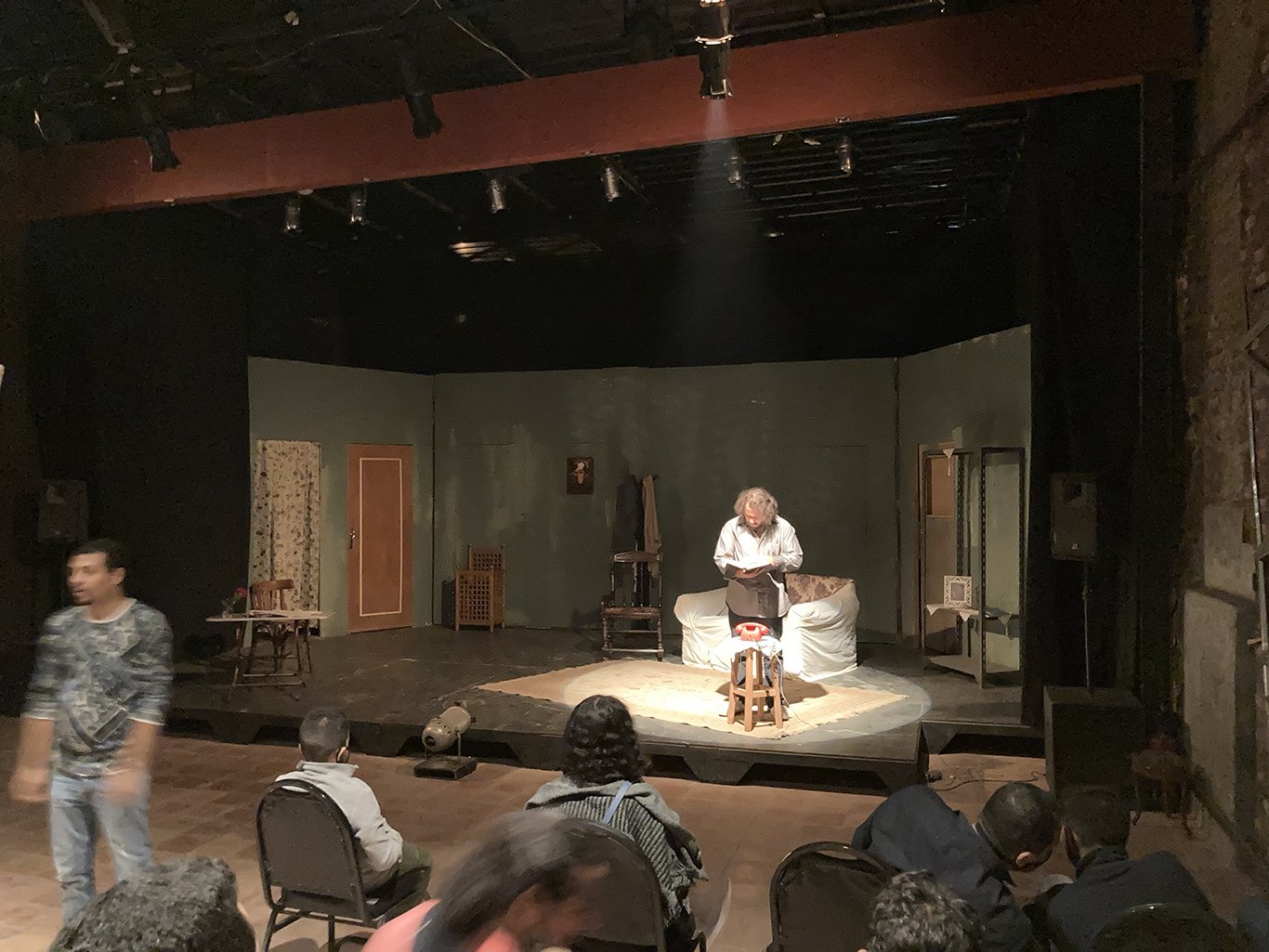As live theatre slowly starts to make a comeback across various Cairo stages, the few plays that have been staged so far seem to coincidentally revolve around themes of mental illness. Although this may be the result of mere coincidence, one can’t help but feel as though now is in fact the perfect time to shine a spotlight on issues of mental illness and raise awareness around mental health.
With everything that has been happening in recent months following the covid-19 pandemic and the resulting lockdown, many have had to grapple with all sorts of issues of mental well-being; so much so, that more and more people are now realizing the importance of taking care of one’s mental health.
The wonderful aspects of these plays is that they showcase the fact that these are issues that have always been a part of society; issues that are real and must be given a platform. What is perhaps most interesting about the two one act plays that were staged at the legendary Jesuit Theatre, is the fact that they are both older plays written by renowned Egyptian playwright Alfred Farag.
Both El Ghareeb (The Stranger) and El Ein el Sehreya (The Peephole) were plays written by Farag in the 1970s and while issues of mental health are brought about in each of these plays, one can’t help but also take note of the way they simultaneously showcase gender roles in Egyptian society. The relatively new arts-centric entity Vybz took it upon themselves to produce these shows and re-introduce them to today’s Egyptian society.

The Stranger revolves around the story of a woman (played by Shahd ElShater) who comes home to find a strange man (played by Ahmad Alhamzawey) in her apartment. As she gets over her initial shock and begins conversing with the man, she comes to realize that she is enjoying his company and eventually she realizes how lonely she feels in her everyday life. One event leads to another and by the end of the play, Ethmat (the woman) realizes that the man and the whole situation may have all been in her head.
Pola Kamel, a young theatre graduate of The American University in Cairo (AUC) who directed both one act plays, added a contemporary touch to the plays in attempts to make the material as relatable to contemporary society as possible. This came in the form of music additions from popular contemporary Egyptian bands such as Cairokee and Masar Egbari.
When it comes to The Stranger, other than having audiences experience the female protagonist’s agony over not being able to tell what’s real from what isn’t as a result of her loneliness and misery, the question of how a woman living alone fends for herself in Egyptian society also comes into play.

Questions of ‘why is she living alone’ and ‘how is she perceived at her workplace’ and ‘why is she so miserable’ all tend to arise throughout the play. Ethmat was performed with conviction and seamlessly portrayed the protagonist’s various struggles.
As one play ended and the scene changed commenced for the second play, audience members were left with food for thought and an eagerness to find out what the second play topic has in store.
The story of The Peephole revolves around a famous actor (played by Ahmed Shamaa) who comes home to find a dead woman (played by Shahd ElShater) on his bed. In shock, disbelief and clueless as to how he should act or what he should do, the actor phones his neighbor who happens to be a lawyer (played by Ahmed Badran). His lawyer neighbor comes down, opens the door to the actor’s bedroom to find nothing.
Starting to question his sanity, the lawyer ends up phoning a psychiatrist (played by Ahmad Alhamzawey) to come and check on the frantic actor. When the psychiatrist arrives, they open the door to find the dead woman lying on the actor’s bed. As events unfold, all three characters end up questioning each of their own sanity.
Well performed and complemented by tasteful set design that build Farag’s worlds, both plays ultimately shed light on issues of mental health within Egyptian society. What is particularly interesting about The Peephole is how the play revolves around this ‘dead woman’ and audiences are given the chance to reflect on how each of the characters speak of the silent unknown character and how they perceive her. At the end of the play, each of the three characters are lying down seemingly defeated and hopeless as to being able to tell reality from fiction; in an almost dream-like atmosphere, the dead woman approaches each of the men individually and they take turns to reflect on who they are.
While the plays may have been written at a time foreign to us, the issues and questions they pose are timeless and well worth re-visiting time and again.






Comment (1)
[…] Read more at egyptianstreets.com […]